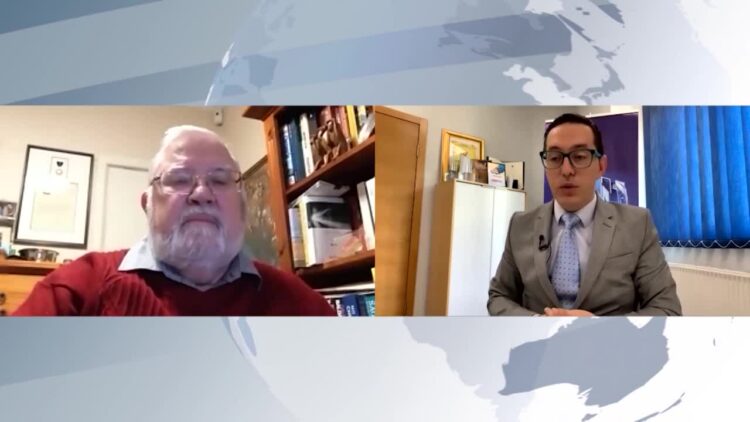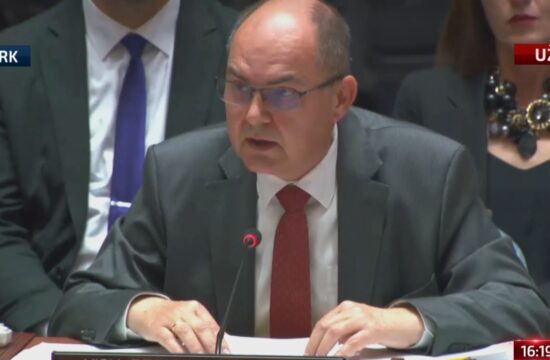
The team gathering evidence of war crimes in Bosnia, specifically the 1995 Srebrenica Genocide, had a hard time trying to cooperate with Bosnian Serb political leaders because they were controlled by the political leadership in Serbia, Graham Blewitt, who served as ICTY Deputy Prosecutor between 1994 and 2004, told N1 on Tuesday.
Blewitt said that, as the Srebrenica Genocide was unfolding, his team watched on in “shock and horror.”
“But knowing that it was going to provide us with good evidence leading to very serious charges against the leadership in respect of the Bosnian Serbs, we pursued it with as much vigour as we could muster,” he said.
“We were very busy with our investigations and bringing and bringing indictments. We knew that the eyes of the world were on us. But we felt fairly comfortable in that we knew that we were on the right path to gathering evidence and we knew eventually there would be trials.”
“We still were not fully staffed at that stage, but then it was a question of reeling in horror when you saw the news reports emerging on television and on the radio and, of course, in the newspapers that about was actually happening in Srebrenica,” Blewitt said, adding that staff watched as the men and the boys were “fleeing in that column” towards the city of Tuzla.
“We realised that some very nasty things were happening, and clearly this was going to be a focus of our investigations,” he said.
Blewitt said that there were media reports showing that former Bosnian Serb general Ratko Mladic was in charge and that his team knew that former President of Bosnia’s Republika Srpska (RS) region, Radovan Karadzic, was also involved in the crimes that were committed in Srebrenica.
“And as the days emerged it was also very clear to us that a genocide was occurring,” he said.
“The charge of genocide was one that we were focused on in any event, there was no clear evidence that would demonstrate that we would be successful in prosecuting a charge of genocide anywhere in the former Yugoslavia. Srebrenica changed all that and within days, if not hours, we assembled teams and gave them the responsibility to get in and get as much evidence together as we could in relation to what was happening in relation with Srebrenica,” he explained.
Blewitt said his team contacted NGO’s and the media, “enlisting their support in identifying relevant witnesses.” Soon, they began gathering evidence and from there, “the investigation just grew stronger and stronger.”
“Then came the revelations that there were mass graves involved and we were putting together forensic teams to investigate that side of it as well. As the months and years went by, that element of the investigation proved to be extremely valuable in terms of gathering very strong evidence.”
He said that it was difficult dealing with Bosnian Serb leadership but, as time went on, there was more and more cooperation.
However, Blewitt said that the Bosnian Serb leaders after Karadzic lost power were “hamstrung in the amount of cooperation they could provide to the tribunal” and that this was because of political leadership in Serbia, particularly late Serbian President Slobodan Milosevic.
“Milosevic in Belgrade was controlling all of that. So we made some progress with the Bosnian Serbs but not enough, and we were pursuing whatever we could in Belgrade as well. But to say that we had full and positive cooperation, that was certainly not the case,” he said, adding that “nevertheless, we kept persisting.”
“We knew eventually that something would happen to bring the main perpetrators to justice. Both Karadzic and Mladic were being protected by Serbia, by Belgrade. But eventually, we were able to locate them, where they were, with some very very good investigative work, working with the security forces of various countries.”
“I always believed that, sooner or later, they would be brought before the tribunal to be prosecuted. Right from the very beginning of the tribunal’s work, I was always confident and optimistic that it would be a successful exercise. And of course, that’s something I’m very proud of being involved in.”
He explained that, when it came to prosecuting Milosevic, “the evidence rested with either secret documents or high-level Serbian officials who knew what the reality was and what Milosevic was doing.”
“And once he was out of political power once he lost that election, then the tide started to turn and people were then prepared to talk to us, governments were more willing to cooperate with us and give us very important information.”
Blewitt said he was certain that Milosevic would have been convicted, had he not died before that could happen.
He criticised former ICTY prosecutor Carla del Ponte for trying to “sideline” him, saying that it is a “very complicated story.” He said his relationship with Del Ponte had “deteriorated badly” and that he felt he could not contribute anymore.
“Basically, I made the decision to leave the tribunal in 2004 for two main reasons – one was that all the tribunal’s investigations were scheduled to finish at the end of 2004 and the second element was that Carla del Ponte had been reappointed for another four-year term as the Chief Prosecutor.”
He said that details about the entire process would be revealed in his book that should soon be published.
More details about the trials before the ICTY can be heard in the full interview above.



